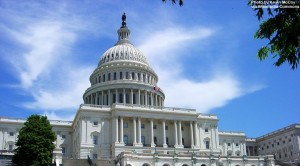Humanist-Led Efforts to Abolish Blasphemy Laws Get Results in Congress

In a momentous victory for the rights of humanists, nontheists, and religious minorities around the world, US Congress spoke with a unified voice in December 2020 when both the House of Representatives and the Senate adopted companion resolutions calling for the global repeal of blasphemy, heresy, and apostasy laws.
These bipartisan resolutions, championed by Representative Jamie Raskin (D-MD) in the House and Senators James Lankford (R-OK) and Chris Coons (D-DE) in the Senate, call upon the president and the US State Department to prioritize the repeal of blasphemy laws in their relationships with countries that have such laws and to encourage the release of prisoners who have been accused or convicted of blasphemy offenses.
Blasphemy laws exist in more than 80 countries and are the most explicit laws banning the expression of doubts or criticism regarding religion. In several countries, the penalty for being found guilty of violating these laws is death. Blasphemy laws are used to restrict not only the rights of the nonreligious but of minorities of all faiths and philosophies, women, LGBTQ people, and political dissidents. These laws harm real people. In April, Mubarak Bala, the president of the Nigerian Humanist Association, was arrested and detained for insulting religion. And in July, Tahir Ahmad Naseem, an American citizen and an Ahmadiyya Muslim, was murdered in a courtroom in Pakistan while standing trial for blasphemy.
Marking the resounding success of the 386-3 vote in the House, Raskin noted,
I’m gratified to see our bipartisan Resolution pass the House. As authoritarian governments around the globe step up the use of blasphemy, heresy and apostasy laws to persecute religious minorities and dissenters, America must speak with one voice against these brutal human rights violations. No one on earth should spend a single day in prison for his or her religious beliefs but hundreds of innocent people have been sentenced to months or years behind bars for these imaginary religious offenses. Our Resolution is a small but important step in prioritizing religious freedom and liberty of conscience worldwide and I thank AHA for uplifting it.
The American Humanist Association (AHA) led a diverse coalition of more than 65 national organizations in support of the two resolutions. In celebration of the House action on December 7, AHA Executive Director Roy Speckhardt said,
H. Res. 512’s passage is an important milestone for unfettered religious expression around the world. Individuals of a minority faith—or no faith at all—should have the latitude to question religion and religious practices without fear of repercussions.
Two days later, at a virtual hearing conducted by the United States Commission on International Religious Freedom (USCIRF), Elizabeth O’Casey, director of advocacy for Humanists International, testified to how the United States can effectively work toward the repeal of blasphemy laws around the world within the scope of the international human rights system. (Humanists International is the global representative body of the humanist movement.)
In her testimony, which occurred before the Senate adopted the resolution on December 19, O’Casey recommended four actions to the commission: building global literacy on human rights and freedom of religion or belief, tackling hate and intolerance while seeking to convince governments to repeal blasphemy laws, using diplomacy and multilateralism to support this work, and leading by example at home by passing the companion Senate Resolution. She noted further:
There is a tendency by some countries to prioritize Christian minorities abroad or Muslim minorities. This is deeply unhelpful and shows a political, rather than real, commitment to change. To lead by example the US must show equal concern for all affected by blasphemy laws, whatever their beliefs.
Responding to the importance of this hearing, Speckhardt said,
Humanists around the globe are leading the fight against religion-based prejudice, violence, and injustice. Today’s hearing demonstrates USCIRF’s commitment to protecting the freedom of religion and belief for all people, as well as the critical work necessary at home and with our partners abroad for us to see that commitment realized.
